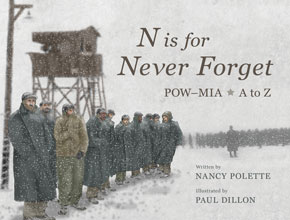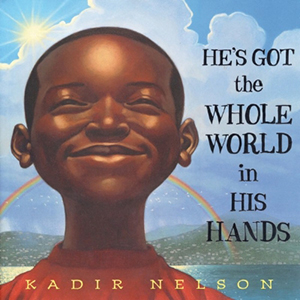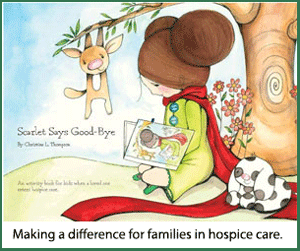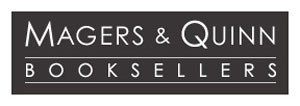When considering manuscripts for publication, publishers look at more than the quality and marketability of a book. They look at an author’s marketing ability as well. Beginning with their first contact with prospective authors, independent publishers are intentional in their conversations about marketing.
“The author and publisher are partners in all aspects of the book publishing process, including—and especially—marketing, which is the key to sales,” says Angela Coleman, founding president of Sisterhood Agenda Enterprises, LLC, the publishing arm of the worldwide nonprofit Sisterhood Agenda.
Marla Jones of Doodle and Peck Publishing in Yukon, Oklahoma, says “It is vital for the author to take ownership of a book’s destiny.” When looking at prospective authors, Marla also looks at an author’s platform, including websites and social media engagement, and asks an author how she will market a book.
Amanda Shofner, publicist at Free Spirit Publishing in Minneapolis, says her company takes a proactive stance, requiring authors to submit a marketing plan, as well as market research, as part of every manuscript submission.
“That goes to our acquisitions meeting, where we look at their ideas alongside what they lay out as their platform,” says Amanda. “Author platform is definitely a factor in deciding whether we want to publish a book or not. Having authors who have an existing platform makes good business sense, because they have a built-in audience.”
An author’s platform is his or her public presence and may include local or national media coverage, a professional website, engagement on social media, appearances, and other ways to connect with readers.
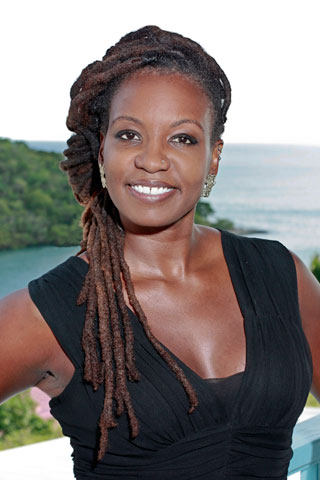
Angela Coleman, founder of Sisterhood Agenda, says, “The author should be someone who is accessible, because that connection is what people are often attracted to.”
“In order to get your book read by a wider audience, potential readers have to know that your book exists,” says Angela at Sisterhood Agenda. “The author should be someone who is accessible, because that connection is what people are often attracted to.”
With each new Free Spirit author, Amanda begins with a fact-finding mission. “I ask, ‘What are you doing, what are you interested in doing? Let’s take that and build on it.’ In an ideal world, we want every author to have a website, to be blogging regularly, on their own site as well as for other publications. We want them to be writing in their industry publications, to be active on social media, in a way that’s building relationships.”
Every author has different strengths and skills, difference audiences, says Amanda. Not all authors want to be on Twitter or Snapchat, and their readers might not be there either.
“I try to dig into where they are, what they feel comfortable with, where their audience is,” she says. “Who and where is the audience? How can we make sure the author is interacting with them?”
Every book needs a marketing plan, publishing professionals agree, though that plan will vary depending on the book, author, and audiences. The most effective plans require input from publishers, publicists, and authors, each bringing their expertise and connections to the process.
“We include authors in all our marketing planning at Sisterhood Agenda,” says Angela. This gets everyone on the same page with strategy and ensures every book she chooses to publish is consistent with the organization’s culture and mission.
At Doodle and Peck, says Marla, “We brainstorm with an author about ways to get the book out and recognized” through author appearances, contests, and media. “For us, it is truly a joint effort,” she says.
Amanda emphasizes that marketing plans should fit the platform, personality, and audience of each author. At Free Spirit, she meets with authors and helps them tweak their marketing plans to fit their personalities, readers, and their books.
“Most of our authors are not full-time, so I try to be respectful of their time outside of marketing,” she says. “I approach it as, ‘Let’s come up with the best, most doable marketing plan for the people you want to reach.’”
Both author and publisher have roles to play in marketing a book; the author is generally in the lead, and the publisher plays a supporting role. Amanda considers herself a guide, encouraging authors in their strengths and equipping them to do their own marketing.
“When an author already has a platform and is doing well, I say let’s continue doing that. They may not know what they’re doing right. I’m here to validate and point out what they are already doing right. I’m here to support them in their own expertise,” she says. “If they have contacts, they should be reaching out to them. If they need me to send review copies and send marketing materials, that’s what I’m here for.“
Amanda uses her professional contacts to connect authors with writing and speaking opportunities and encourages authors to use their own contacts in similar ways.
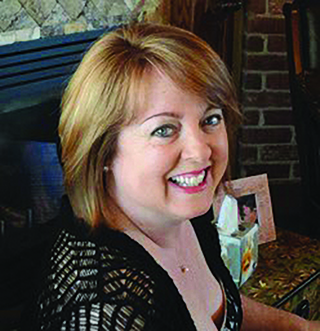
Marla Jones, publisher at Doodle and Peck, says book marketing is a joint effort between author and publisher, but “it is vital for the author to take ownership of a book’s destiny.”
Marla says her marketing budget as a small publisher is limited, so efficient strategies are essential. She provides some print material for author events and promotion, but close communication and encouragement are among her strongest marketing tools. She helps authors identify needs in their marketing skills and strategies.
“If they don’t do social media, or they don’t know how, we get them trained in it, or find another way to reach out to their audience, such as speaking engagements and other event appearances,” she says.
Angela points out that different perspectives provide differing strengths. “Depending on personality, the publisher is often in a more objective position to capitalize on the strengths of their authors and sell them in a way that the author may not be able to sell themselves,” she says.
Authors need to realize the importance of their role in marketing books, Amanda says. Free Spirit Publishing expects authors to have a strong online presence, including a website.
“You need a digital footprint that shows, yes, you are an expert. For example, I can pitch an author to a newspaper as a source for a topic. That journalist then Googles the author; and if they only find information on their publisher’s page, it’s hard for the journalist to find out if this person is truly an expert.”
A website can be considered an online business card, says Amanda. If someone is searching for an author online, the search should turn up complete information about the author, his or her books, and contact information. She concludes that an aspiring author who lacks a platform and the interest in developing one would probably not get a book contract to begin with.
“If you wrote the most amazing book ever, and no one knows about it, and no one can find information about it, no one is going to read it. Online presence is about discoverability,” says Amanda.
Traditional publishing contracts do not usually include specific marketing requirements for authors, but they do include clear expectations that authors will actively participate in marketing. Separate from author contracts, publishers may also provide written guidance to outline author and publisher responsibilities.
Wendy Dean, publisher at The Omnibus Publishing, says her company provides a “relationship summary” which defines expectations and roles for both publisher and author, including those related to marketing.
“It is not part of the contract, because not every piece of the summary applies to every book,” Wendy explains. “We make adjustments to the relationship summary as the needs of each author and book differs.”
Wendy reviews the summary with each author individually, laying out marketing strategies and roles very specifically. For example, she says this discussion includes outlining who is responsible for making initial contacts, who will follow up, and due dates for those actions.
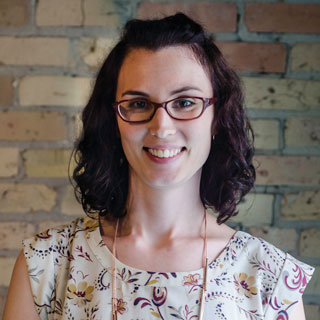
Amanda Shofner, publicist at Free Spirit Publishing, says, “Author platform is definitely a factor in deciding whether we want to publish a book or not.”
Similarly, Free Spirit gives each of its authors a publicity guide to explain publisher and author roles and responsibilities.
“When I talk to an author the first time, I tell them what we can do, but I also explain that everything we do has to be supported by their own efforts,” Amanda says. “Good marketing and good book promotion require building momentum. The more the authors are out there and visible, building connections, the more successful they will be and their book will be.”
Marketing Tips from Amanda Shofner, Publicist at Free Spirit Publishing
- Marketing is about building connections and relationships with people and providing valuable information to them. Authors whose books are doing well are out there promoting themselves, speaking, and going to conferences.
- Ultimately, people buy from those they know, like, and trust. Online presence and personal appearances provide opportunities to build that knowing, liking, and trusting.
- Consider an author website an online business card. It should share information about the author, books, and how to contact. Include other valuable information to draw people to the site, and include links to articles on other sites written by the author.
- Social media channels can be personal, inviting others into the publishing journey, with announcements like, “I just signed my contract!” Anyone who knows the author will be excited along with them. When the book comes out, everyone is waiting for it, and they want to buy it. But remember, marketing is not just about selling all the time. It’s about building relationships and making connections.
- Personal appearances are important. Speaking at events is a fantastic way to build relationships and make connections. Especially in a digital world, people value face-to-face interaction. Publishers do not usually pay for travel and other expenses. Authors who are new to speaking can start with appearances at local or regional events with less expensive travel requirements. This builds a speaker profile to grow into paid speaking engagements.
Sisterhood Agenda
Web: SisterhoodAgenda.com
Facebook: /SisterhoodAgenda
Twitter: @SisterAgenda
Pinterest: @SisterAgenda
Tumblr: @SisterhoodAgenda
Doodle and Peck Publishing
Web: DoodleandPeck.com
Twitter: @DoodleandPeck1
Free Spirit Publishing
Web: FreeSpiritPublishing.com
Facebook: /FreeSpiritPublishing
Twitter: @FreeSpiritBooks
YouTube: @FreeSpiritPublishing
Pinterest: @FreeSpiritBooks
The Omnibus Publishing
Web: TheOmnibusPublishing.com
Facebook: /TheOmnibusPublishing
Twitter: @OmnibusPub
Instagram: @OmnibusPub
Photos courtesy of respective publishing professionals. Feature photo: Angela Coleman, founding president of Sisterhood Agenda, marketing at a book fair.
Terri Barnes is a regular contributor to Books Make a Difference magazine, author of the book Spouse Calls: Messages From a Military Life, and senior editor at Elva Resa Publishing. She connects with her readers on Instagram, Facebook, and Twitter, teaches writing workshops, and talks about books and writers whenever she has an opportunity.
This article first published November 2018.



